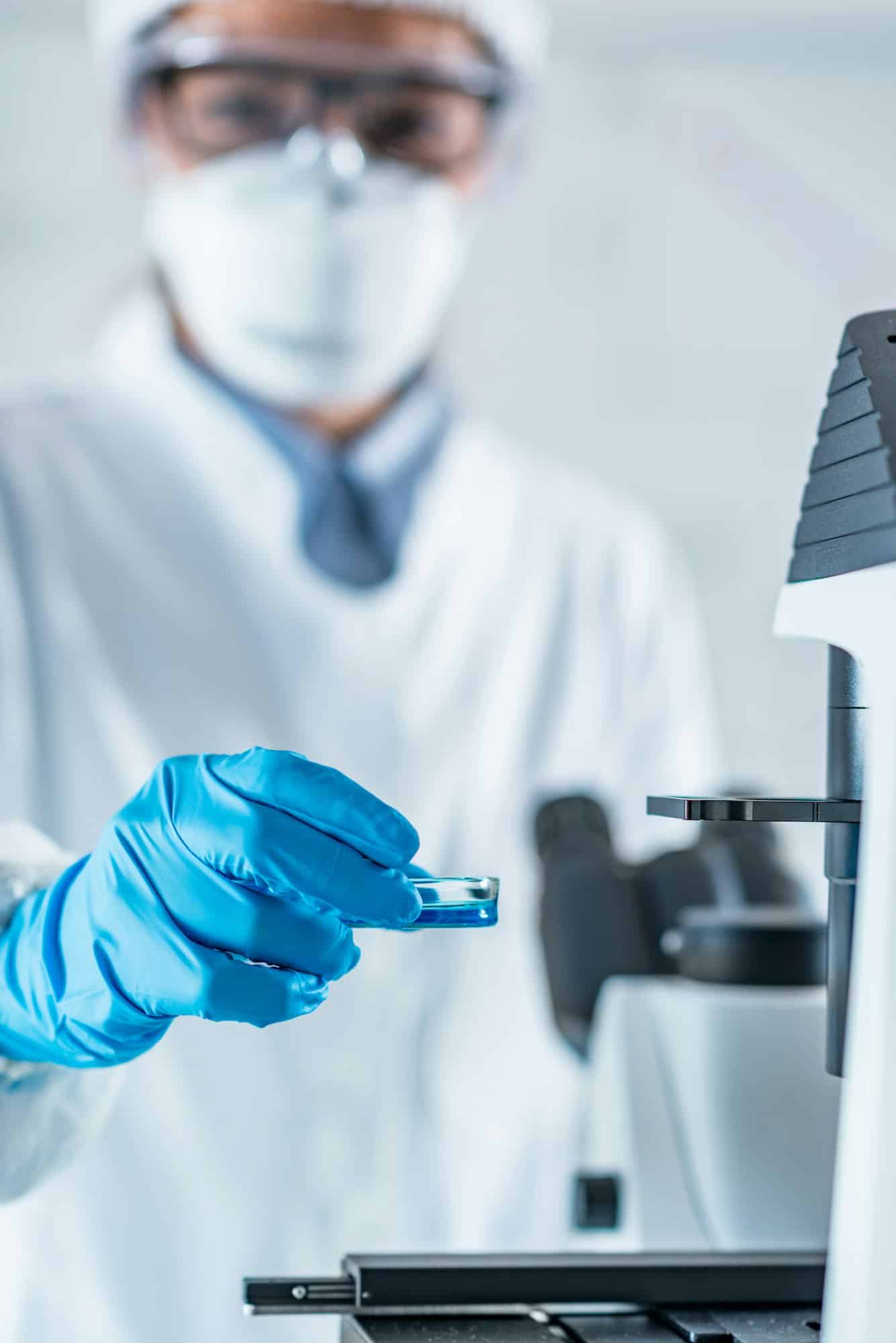How Is Biotech Innovating in Allergy Detection?

Hello, health enthusiasts! In an age where technology and science have made significant strides, you’ll find it fascinating how the field of biotech is employing advanced techniques to revolutionize allergy detection. Over the last few years, research scholars have been working tirelessly, utilizing resources such as Google Scholar, PubMed, and Crossref to develop novel methods to detect allergic diseases. As we dive into this topic, you’ll see how the marriage between biotech and allergy care is not only improving our understanding of these diseases but also giving patients suffering from allergies a renewed sense of hope.
Biotech and Food Allergy Detection
Food allergies are quite common. They occur when the body’s immune system sees a certain food as harmful and reacts to it. The proteins in these foods are perceived as threats, triggering allergic reactions. But you’ll be surprised to know how biotech is transforming the way these allergies are detected.
In parallel : Everything you need to know about MyImageGPT in the era of Artificial Intelligence
In recent years, biotech firms have been working with various compounds to develop allergy detection platforms. The platforms consist of technology-based solutions that can detect allergens in food products. These platforms are specifically designed to identify the offending proteins, thus helping to mitigate potentially severe allergic reactions.
Google Scholar and PubMed have numerous articles published by scholars who have been studying this development. A quick search on these platforms reveals a wealth of information about how biotech is playing a crucial role in identifying allergens.
Also to discover : Sustainable transportation: the rise of electric scooters
Biotech in Allergy Care and Management
Now, managing allergies has always been a challenge. However, the advent of biotech in this field promises to change the game. Biotech is not just about detection; it’s also about providing improved care for allergy patients.
Biotech companies are developing wearable devices that can monitor the patient’s allergy symptoms in real time. These devices are designed to provide patients and healthcare professionals with accurate and timely data about the patient’s health status, helping to manage the disease more effectively.
Moreover, databases such as Crossref have become an invaluable resource for health care professionals. They provide access to a wealth of information on the latest developments in the field of biotech as it relates to allergy care and management.
Biotech and Allergen Detection Technology
In the quest to improve health conditions, allergen detection technology is another area where biotech is making its mark. The cross-disciplinary approach of biotech is providing fresh insights into the identification and management of disease-triggering allergens.
Biotech companies are developing highly sensitive biosensors to detect the presence of allergens in the environment. These biosensors are capable of detecting minute quantities of allergens, which can help to prevent allergic reactions before they occur.
In addition, these companies are also developing tools that can detect allergens in food products at the molecular level. This technology allows for the detection of allergens even when they are present in trace amounts, making it a potent tool in the fight against allergies.
Biotech and Allergy Research
Research forms the backbone of any development in health-related disciplines. Biotech researchers are focusing their efforts on understanding allergies at the cellular and molecular levels, in a bid to develop effective therapies.
These researchers are using advanced tools and technologies to study the immune response to various allergens. For instance, they are using genetic engineering to modify cells and proteins, with the aim of developing therapeutics that can treat or even cure allergic diseases.
Resources like Google Scholar, PubMed, and Crossref have become indispensable for these researchers. They provide a platform for the researchers to share their findings, contributing to the global pool of knowledge about allergies and their management.
The Future of Biotech in Allergy Detection
The future of biotech in allergy detection indeed looks bright. With advancements in this field, the idea of developing a universal allergy detection system is no longer a pipe dream.
Biotech companies are already experimenting with nanotechnology to enhance the sensitivity and specificity of allergy detection systems. In addition, researchers are working to develop personalized allergy treatments, using the patient’s genetic profile to predict their allergic responses.
The realm of biotech is vast and the possibilities it presents for allergy detection and care are immense. As we look forward to more innovative developments in this field, we can only imagine how much more biotech can help improve our understanding and management of allergies.
Biotech and Precision Medicine in Allergies
With the surge in precision medicine, biotech is paving the way for tailor-made allergy treatments. Precision medicine revolves around the idea that each individual has a unique genetic make-up, and so, the treatment strategies should also be unique to them.
In the field of allergy detection and treatment, precision medicine translates to custom-made therapies for patients based on their genetic profiles. Biotech firms are utilizing advanced technologies to study the genetics of allergic reactions. They are researching how genetic variations can influence an individual’s susceptibility to allergies, the severity of their reactions, and their response to treatments.
Google Scholar and PubMed are rich in studies that show how genetic variations can contribute to the complexity of allergic diseases. For example, a study published in J Allergy Clin Immunol found that certain genetic variants can increase the risk of developing food allergies. This information can be used to predict a person’s risk of allergies and to develop targeted therapies.
Additionally, biotech is also leveraging the power of blood pressure monitoring tools for managing allergic reactions. High blood pressure can be a side effect of severe allergic reactions. By applying biotech innovations, companies are developing devices that not only monitor blood pressure but can also detect early signs of an allergic reaction, alerting health care providers and patients in real time.
Integrating Biotech and Public Health for Allergy Management
Public health initiatives play a crucial role in the management of chronic diseases, including allergies. The integration of biotech in public health can significantly elevate our approach to managing allergic diseases across populations.
Biotech innovations can aid in public health strategies by providing low-cost allergy detection solutions. With the development of point-of-care devices for allergy detection, it is now possible to conduct large-scale screenings of populations at risk. These devices, which can quickly and accurately detect allergenic compounds, have the potential to become an integral part of public health initiatives for allergy management.
Moreover, biotech is also working on minimizing the side effects of allergy treatments. Traditionally, allergy treatments have been associated with a host of side effects, which often deter patients from continuing with their treatment regimes. Biotech firms are developing targeted therapies, which can significantly reduce these side effects, improving the overall quality of life for allergy patients.
Biotech companies are also contributing to public health by educating the public about allergies. Through their research, they are providing valuable insights into the causes and management of allergies, which can be used to educate the public and raise awareness about these common yet often misunderstood diseases.
Conclusion: Biotech – A Game Changer in Allergy Care
It is apparent that biotech has significantly transformed the landscape of allergy detection and management. From developing advanced detection platforms to integrating precision medicine for tailor-made therapies, biotech innovations are revolutionizing allergy care.
The future holds exciting possibilities. With the advent of nanotechnology and the continuous development in genetic engineering, we can look forward to more efficient, accurate, and personalized allergy detection and treatment strategies.
Moreover, the potential of biotech extends beyond individual patient care. It promises to be a powerful tool in public health strategies aimed at managing allergies at the population level. The integration of point-of-care devices in large-scale screenings and the development of low-cost detection solutions can significantly elevate public health initiatives for allergy management.
It is safe to say that the marriage between biotech and allergy care is not only beneficial but also necessary. With the prevalence of allergies on the rise, the need for advanced and effective solutions is more crucial than ever. As we march towards this promising future, let’s remember to open a separate window for opportunities that lie ahead, and together, we can conquer the world of allergies.
